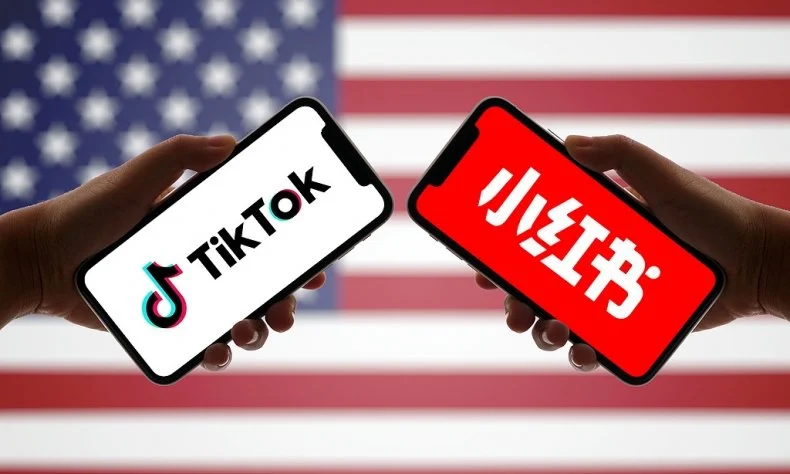The TikTok ban: a signal of shifting digital power and governance
TikTok, with its 170 million users in the US, has long been a digital powerhouse shaping culture, commerce and communication. But what happens when such an influential platform is banned? The recent prohibition has sparked a fascinating migration of users to a Chinese app called RedNote, signaling a broader shift in digital power dynamics and raising important questions about governance in the digital age.
The year 2025 has opened with a series of unexpected developments, reinforcing the notion that digital is inherently political. The recent banning of TikTok has not only disrupted a major platform but also sparked a surprising phenomenon: the rise of "TikTok refugees." Many Americans have started migrating to RedNote, the Chinese app known as Xiaohongshu this week. Despite concerns about data privacy, the app shot to No 1 in US app stores right after the ban announcement, with more than half a million downloads from new users. In a live chat room named “TikTok Refugees,” more than 50,000 users from the U.S. and China gathered within a single day, the Guardian writes. This mass migration highlights the interconnectedness of digital platforms and the socio-political dynamics they influence.
Later this week, Trump announced he is considering issuing an executive order to allow TikTok to continue operating, despite an impending legal ban, until new ownership is secured. While such mixed signals are unsurprising, the ban is still set to take effect on 19th January 2025.
Emphasising that digital is political
Digital platforms such as TikTok, Instagram and LinkedIn are far more than tools for communication or commerce. They shape societal norms, influence behaviors and dictate economic flows. TikTok’s ban is not merely about limiting access to a social media platform but about controlling a significant channel of influence for the people using it. With 170 million U.S. users spending an average of 51 minutes daily on the app in 2024, TikTok was more than a content-sharing platform. It became an economic and cultural ecosystem. From creators generating income to businesses leveraging its reach for marketing, TikTok's influence extended deeply into American society.
When decisions like this are made, it underscores how digital policies can shape societal structures. TikTok has been an industry in the US. The ban can potentially wipe out $1.3 billion in revenue in a single month and disrupt the income streams of countless individuals. In a country where the federal minimum wage is $7.25, TikTok offered opportunities for many to bridge income gaps. What happens when those opportunities are wiped out?
The rising power of digital titans
In this context, the consolidation of digital power among a select few individuals becomes even more concerning. Elon Musk, the world’s richest person with an estimated net worth of US$426 billion as of January 2025, controls two-thirds of the world’s active satellites and has positioned himself as a central figure in the U.S. government under Trump’s administration. Musk’s reach extends beyond space, with Tesla’s global network collecting vast amounts of data that could influence transportation and energy systems worldwide.
Similarly, Mark Zuckerberg, with Facebook’s over 3 billion users, wields unparalleled influence over global communication. His recent decision to remove certain fact-checking mechanisms from the platform raises questions about the future of information integrity in the digital age. As these tech leaders gain more control, the line between corporate ambitions and political agendas becomes increasingly blurred.
If we don’t re-imagine the direction of digitalisation, someone will and we know who
The TikTok case exemplifies why we must rethink the direction of digitalisation NOW. Decisions about digital platforms should not be made in isolation. Digitalisation should be made more transparent and the broader impacts must be considered while re-imagining the new systems, logics and services that run our world. How does our digital life look like in 2050? Digitalisation holds the power to revitalise both humanity and our planet. However, when access is restricted or policies prioritise control over inclusivity, it can take us to a very dark destination.
Digitalisation defines the trajectory of societies. The TikTok ban is a reminder that every action in the digital realm has far-reaching consequences, and we must remain vigilant in envisioning a digital future that serves the collective good.
